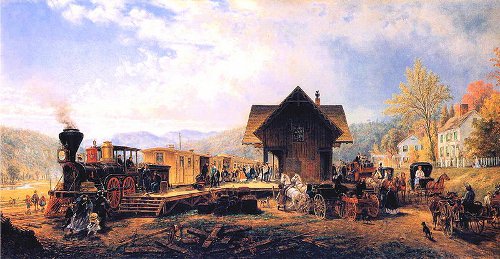
On Oct. 15, 1856, the London Times published an alarming account of a rail journey in Georgia — the author, “John Arrowsmith of Liverpool,” claimed that half a dozen duels had broken out during a single day’s ride:
Of the two dozen passengers fifteen are mentioned as entering more or less into the action of the drama; twelve took a direct part in duels; six were killed, and three were left on the way fighting. Four of the duels were fought at convenient spots, the train stopping for the purpose; one was fought in the luggage car while the train was in motion; and the one with uncertain results was fought at a regular stopping place. Three of the dead bodies were left behind; one was carried from the scene of the duel and deposited on the luggage; another lay where it fell in the luggage car; another was throw out on the roadside.
After a torrent of ridicule from the American press, the retraction-shy Times tried to claim that the affair had taken place in 1828 — but that was “some dozen years,” one critic noted, “before the erection of a railroad in Georgia, or the invention of revolvers, the terrible weapons used upon the sanguinary occasion.” The hoaxer was never identified.
